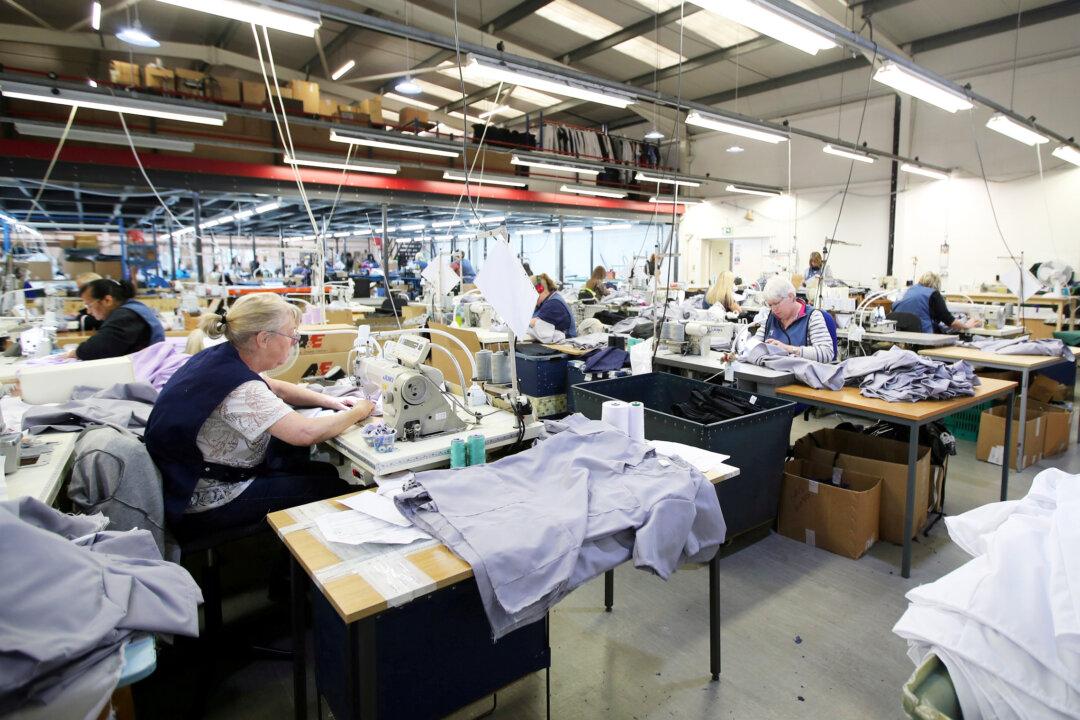LONDON—The historic collapse in British manufacturing caused by the coronavirus lockdown abated in June as companies reported a small increase in output, a survey showed on Wednesday.
But a British employers group says immediate action from finance minister Rishi Sunak is needed after a record deterioration in business in the April–June period.





